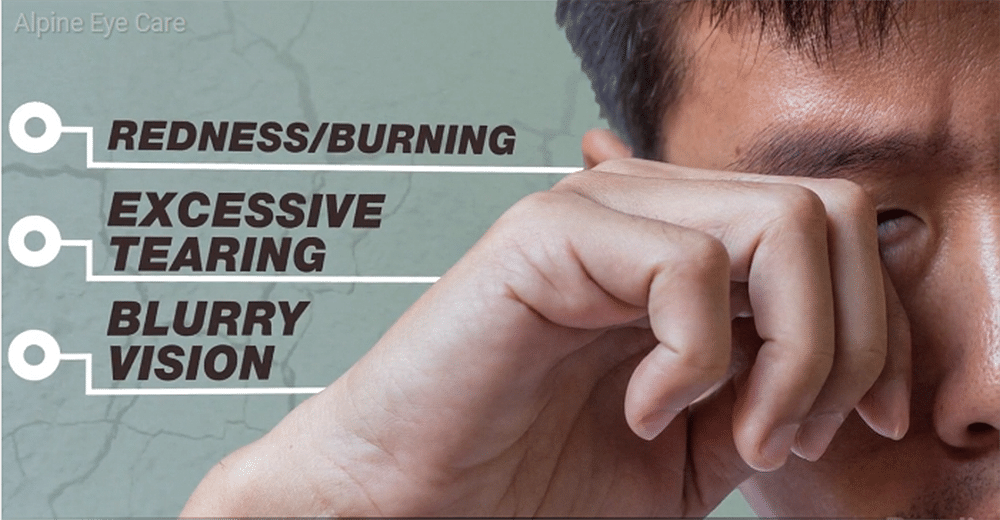When you think of dry eye, you likely think of red, irritated eyes and commercial eye drops promising relief. However, what you may not know is that dry eye is actually a complex disease that frustrates and impacts the lives of more than 30 million people throughout the United States. It has numerous different causes that in some cases interact or overlap, and affects every patient differently. Some patients may not experience any symptoms at all despite having a clear diagnosis, while other who test negative for the disease suffer from all sorts of commonly reported symptoms, including:
- Blurry Vision;
- Excessive Dryness/Lack of Moisture;
- Burning;
- Stinging;
- Gritty/Irritated Feeling (like something is in your eye).
Causes/Triggers
Dry eye can be caused by a variety of factors, and can be triggered without warning for a number of reasons. Some of the most common causes of dry eye are environmental triggers, like the weather, pollen, pollution, and more. Other times, dry eye can be caused by certain medications, like birth control, antihistamines, and asthma medications, or through excessive contact lens use or screen time. If you think you might be suffering from dry eye, it’s important you be as clear as possible when communicating with your physician about everything in your life. The best way to ensure an accurate diagnosis is with complete and total clarity.
Impact
It is known that patients who suffer from dry eye have a significantly lower quality of life than those who don’t, mostly because dry eye can impact a person’s life in just more ways than one. With dry eye, simple tasks like checking your email or putting makeup in the mirror can become painful, disheartening, and time consuming, resulting in a greater risk of anxiety or depression. Consequently, personal relationships can suffer, and people can find themselves more isolated as well as without the help they need.
Solution
Although there is still a lot left to learn about the causes and concerns of conditions like dry eye, you can still protect yourself today. For instance, make sure you wear protective lenses when you need them to protect your eyes from exposure to wind that’s more likely contaminated with pollutants. Talk with your doctor about the chances of you suffering from dry eye when you’re prescribed any new medications. And above all else, make sure you schedule your annual eye exams with our ocular professionals at Alpine Eye Care, and keep us in the loop about any and everything going on in your life to ensure we’re able to provide you the best possible care. Schedule an appointment by calling us directly at 1.877.733.2020, today.

